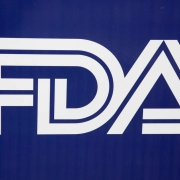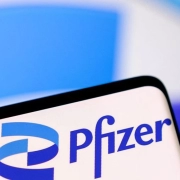FDA shows confidence in Pfizer’s maternal RSV shot ahead of panel
FDA shows confidence in Pfizer’s maternal RSV shot ahead of panel
Published: May 18, 2023
By Tristan Manalac
BioSpace
Abrysvo, Pfizer’s investigational vaccine for respiratory syncytial virus infection, appears to be safe and effective in the pediatric setting, according to the FDA’s briefing document published ahead of an advisory committee meeting.
The agency’s Vaccines and Related Biological Products Advisory Committee (VRBPAC) will convene Thursday to examine the risk-benefit profile of Abrysvo, which Pfizer is proposing to administer to mothers during their second or third trimester of pregnancy to immunize children from birth through six months of age.
Pfizer is backing Abrysvo’s Biologics License Application with data from five clinical trials, totaling more than 4,100 mothers dosed with the candidate. The company’s own briefing document showed that Abrysvo achieved a vaccine efficacy of 81.1% against laboratory-confirmed severe medically-attended lower respiratory tract infection (MA-LRTI) through 90 days after birth. By day 180, the candidate’s efficacy estimate remained high at 69.4%.
As for safety, Pfizer documented mostly mild or moderate local and systemic adverse reactions among inoculated mothers. Serious adverse events, stillbirths and fetal deaths were uncommon in general and were balanced between the treated and placebo groups.
Abrysvo was likewise safe for infants, with similar rates of adverse side effects, including preterm birth, low biirth weight and developmental delays, occurring in both vaccinated and placebo groups.
These data point to Abrysvo’s “favorable benefit/risk profile,” Pfizer wrote in the briefing document, adding that active immunization in pregnant mothers could strongly suppress severe MA-LRTI in infants and, in turn, “has the potential to have an impact on reducing global infant mortality due to RSV.”
Concerns with Safety Data
In the FDA’s analysis of Pfizer’s data, its reviewers cited Abrysvo’s “successful vaccine efficacy for prevention of severe [lower respiratory tract disease] caused by RSV in infants.”
However, the agency also flagged an “imbalance in the percentage of premature infants” in one of the Abrysvo studies. In this Phase III, randomized, double-blinded and placebo-controlled trial, 5.7% of infants in the Abrysvo group were born preterm, as opposed to 4.7% among placebo comparators.
This 1% difference was not statistically significant, and most premature births were still near term. In the Abrysvo arm, 5% of all live births were within 34 and 37 weeks of gestation. Moreover, only one infant in each study arm was born extremely prematurely.
“The safety data appear generally favorable for vaccine administration, and we noted potential uncertainty based on the numerical imbalance in premature deliveries,” the FDA’s reviewers wrote, adding that the VRBPAC should take this into consideration as the external experts vote on whether Pfizer’s data support a “favorable risk analysis” of Abrysvo.
Source: BioSpace


 Reuters
Reuters



 Reuters
Reuters

